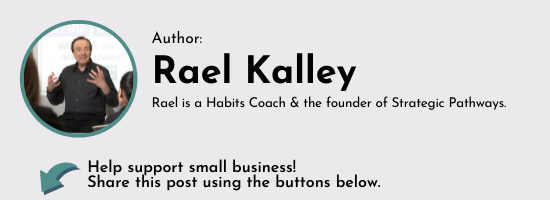I remember a conversation a few years ago with some acquaintances. At the time, they were all senior managers in a mid-size North America wide corporation.
They’d all been with the company for more than twenty years. For two of the five, this was the only company in which they had ever worked.
At the time of this meeting, the company had just been acquired by a large, international competitor. I got the distinct impression that in their view, this development was not an improvement.
They talked fondly of the “good old days,” when willingly showed up in their offices before six o’clock in the morning and reluctantly dragged themselves back home late in the evening. They felt so committed to this organization and all the good it was doing in the world.
Under the new regime, things had become very, very different.
Profit as a Purpose
The new management had brought with them something that they constantly referred to as “singularity of focus”. This meant, as they explained, that one thing, and only one thing, mattered from here on in and that one thing was called “the bottom line.”
What had been a people-centric organisation that made lots of money became a money centric organisation, where people were simply the means to that end.
“We are here for one thing and one thing only,” they were reminded by their new bosses, “and that is to boost profits. Period. It’s all about money. There is no other reason for any of us to come to work.”
Over the following months and years, this group continued to do what was expected of them, and ensured their direct reports did what was expected of them, but there were no more 6 AM arrivals at work. No more burning the midnight oil.
Fast Forward to Today
Almost a decade later, none of those people is still working for the organization. About 6 months after that gathering, the stock shot up to an all-time high. Problem is, that price remains the all-time high. Today’s share price is less than half that.
The company has been through five rounds of layoffs in ten years. The last round, in 2020, cut 60% of the remaining staff. Between retirement and downsizing, the “glory days” employees have moved on.
Sadly, it didn’t have to be that way.
Discretionary Effort.
I can’t say for certain this organization could have done anything to stave off their horrible decade. I can say they didn’t do anything to help themselves in the HR department.
When they let employees know explicitly that they cared about profits more than anything, they unwittingly spurred the opposite effect.
You need people to help you bring in profits. As long as that remains the case, you can’t value the profits over the people.
The people will no longer be willing to provide that one thing that all companies require in order to become great organisations, and that one thing is called discretionary effort.
A Job Well Done
Discretionary Effort is defined as being performance that is delivered with absolutely no expectation of reward, and no fear of reprisal, reprimand, or any negative consequences if it is not delivered.
We often refer to it as “above and beyond” or “going the extra mile” and this is something without which no organisation will ever achieve greatness.
Discretionary effort is delivered by people, not because they have to, but because they want to do it do it; because they have “fire in the belly”. They have an abundance of caring, commitment, dedication, conviction, loyalty, and all the other attributes that are so crucial in motivating people to deliver at their highest levels.
When you kill passion, stifle creativity, and eliminate desire you have taken the first steps on the pathway to mediocrity.
(Click to Tweet)
Exactly where my five colleagues found themselves at the time of our conversation ten years ago.
We only ever do one thing; what is important to us in the moment. That’s it. That’s all we do. That’s all we will ever do. As our determination of importance changes, so do our behaviours.
Behavioural change is part of what happened at this behemoth of a company.
In the past, under the old management group, it was vitally important to each of them to be involved in helping the company achieve its greatest potential. Because that was important to them, they willingly gave of themselves in any way that they could to help the company realised that those goals.
After the new leadership explained its number one commitment was cash, staff members felt it was acceptable to only deliver what is expected of them. The maximum they ever delivered again to that company was the minimum required to avoid drawing negative attention to themselves.
Don’t Stifle Discretionary Effort
When discretionary effort leaves the building, it takes with it all of our reasons for being passionate and committed.
It’s what happens when the focus on the bottom line is so intense, and so singular that there is no effort made to address the factors that influence the bottom line.
Too many companies fail to understand the importance of treating their people in ways that promotes this endlessly renewable resource: discretionary effort
Till we read again.


